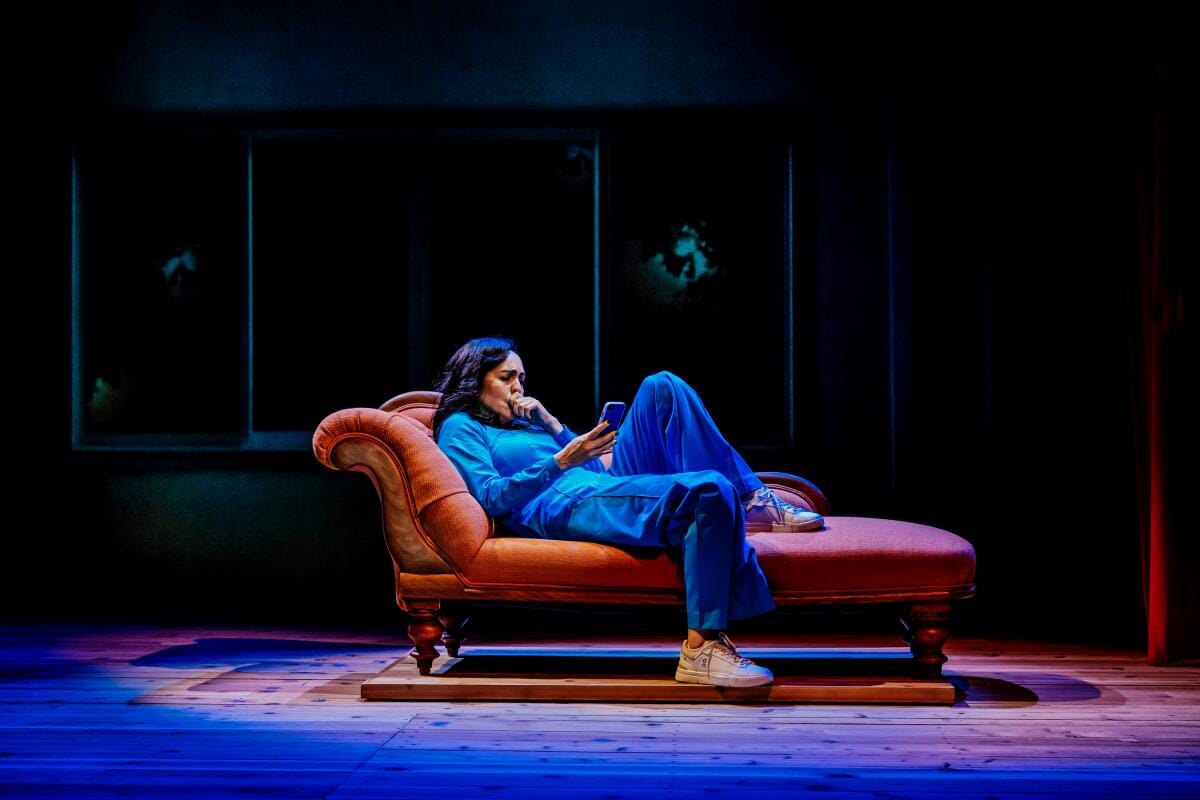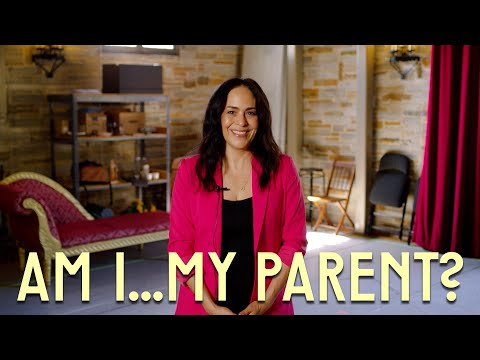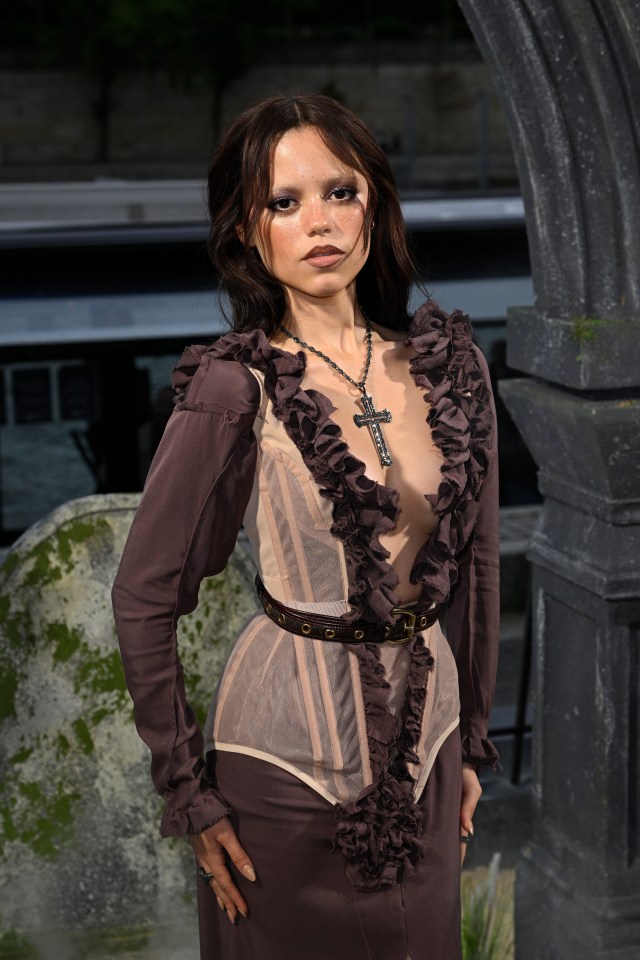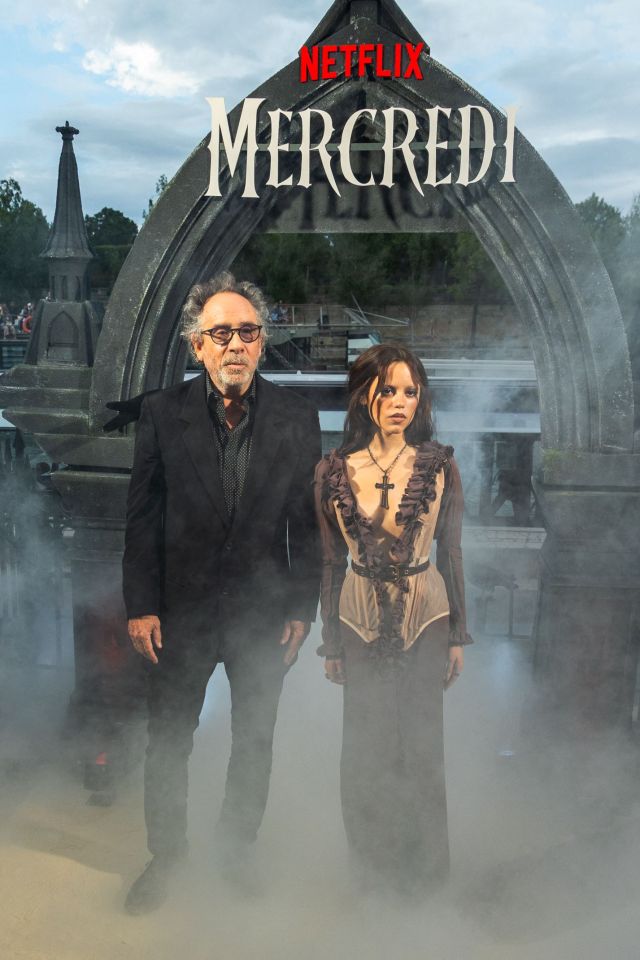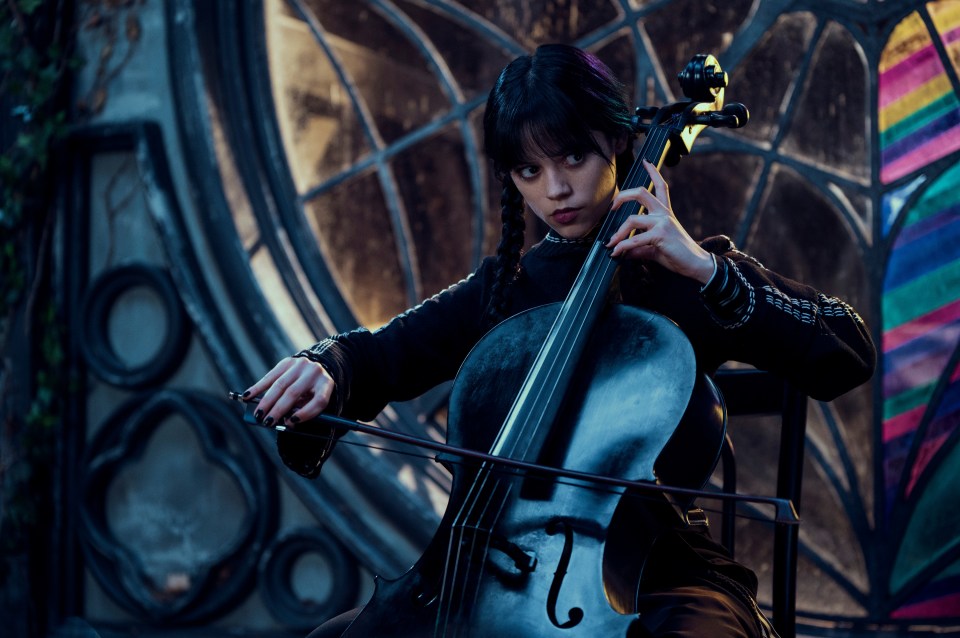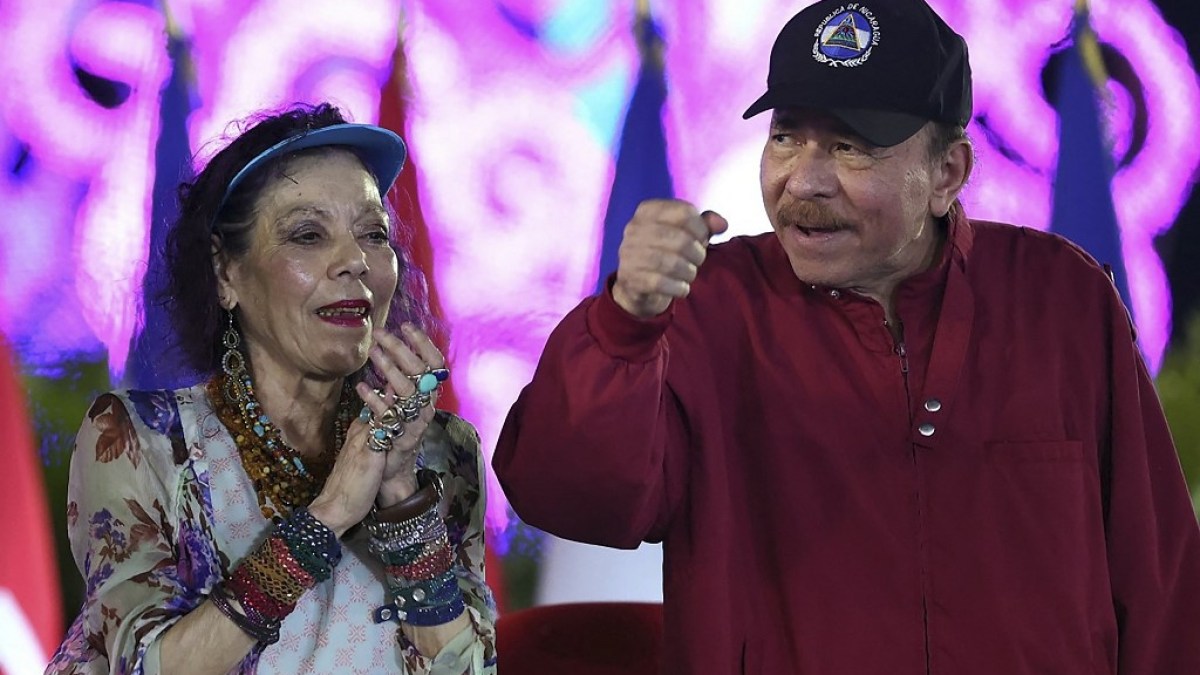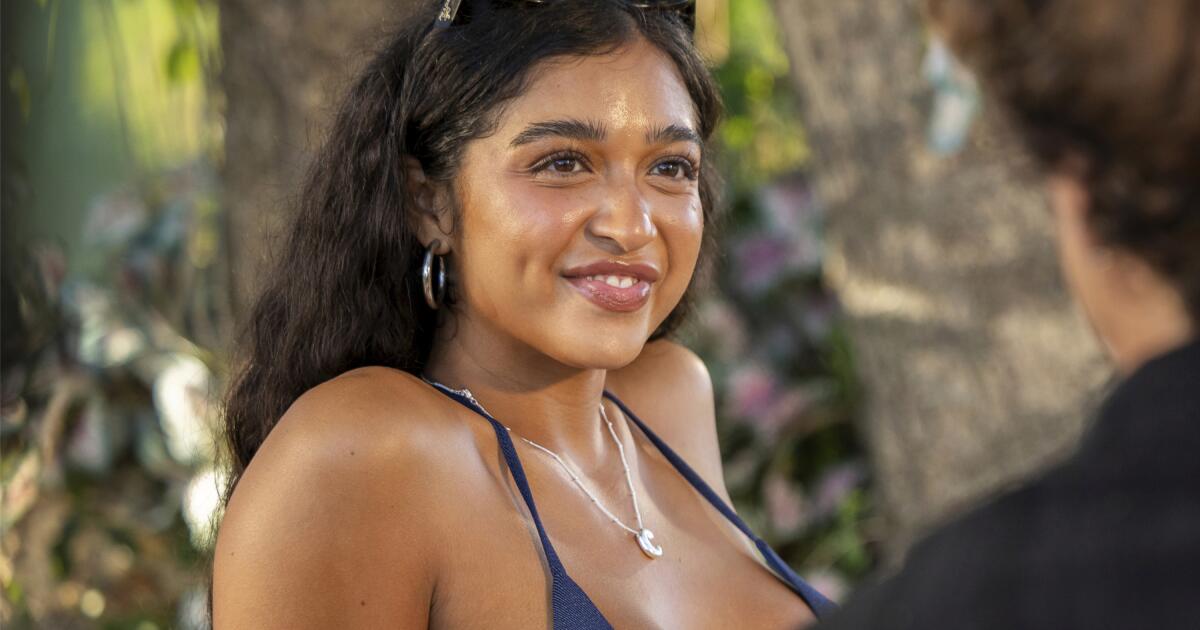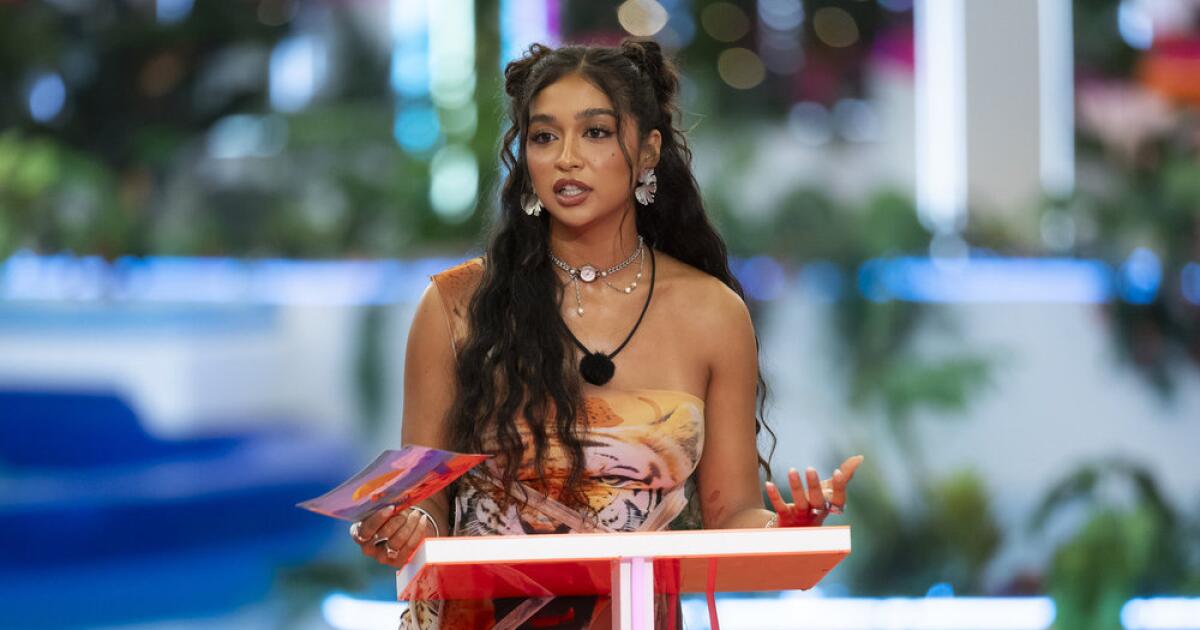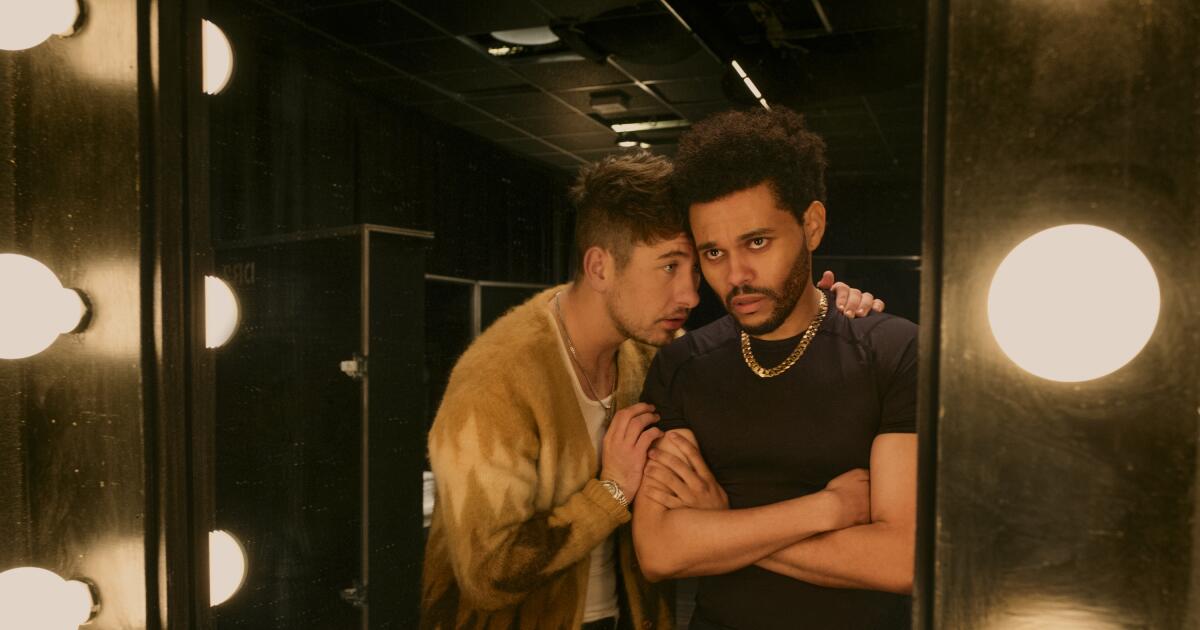‘Am I Roxie’ review: Roxana Ortega in solo show at Geffen Playhouse
In “Am I Roxie?,” a world premiere one-woman-show at the Geffen Playhouse, Roxana Ortega, a working actress and alum of the Groundlings Theatre’s Sunday Company, revisits the period in her life when she was the caregiver for her mother, whose memory was unraveling.
When Ortega’s father died of a sudden heart attack outside the post office, she was unprepared for the consequences. He had been protecting the family from her mother’s decline.
An immigrant from Peru who had relinquished her dreams of acting to raise a family, Carmen had a special bond with Ortega. When little Roxana was growing up in Fullerton, her mother would improvise operas while fixing breakfast. Together, they dreamed theatrical dreams.
Carmen has many sisters — “Picture the Housewives of Beverly Hills, but in Canoga Park” — but none were able to take her in. Ortega’s siblings, married with children, were similarly unable.
Not having kids of her own deprived Ortega of the one excuse her family would have recognized. Yet she still wanted to have kids, though not before she found the right husband and made some headway in a career marked by small triumphs, such as booking commercials and webisodes. Was she really going to put her life on hold for a few years?
Finding a painful compromise, she decides to move her mother to an assisted-living facility near her in L.A. Taking this step requires her to go to war with her “inner Latina critic,” who reminds her of the code of her blood: “We take care of our own.” She adds an expletive to the end of this pronouncement, but no emphasis is needed for a daughter who has already indicted herself for selfishness, the one unpardonable sin for a Latina.
“Am I Roxie?,” performed by Ortega with unflagging ebullience in an athletic-wear jumpsuit designed for comfort rather than style, brings to the exhausting, guilt-inducing grind of eldercare her own cultural spin. The subject is relatable, as lifespans have extended while health insurance only seems to contract. Ortega is an agreeable guide through the thicket of problems, such as choosing between senior facilities that resemble “sad Marriotts” or “sad La Quinta Inns.”
The show is more of a personal essay composed for the stage than a deeply imagined performance work. Ortega’s approach is friendly and wryly conversational. She’s bearing witness to a human dilemma our culture would prefer to keep under wraps, but Ortega might just as easily be doing an audio essay or podcast. The one character who comes vividly to life is her own.
There’s a rich tradition of performance artists bringing difficult personal stories to public light. “Am I Roxie?” seems disconnected from the work of Lisa Kron, Deb Margolin and Marga Gomez. Soloists who can populate the stage with uncurtailed ambition.
Thematically, “Am I Roxie?” is structured around the “Circle of Life” song from “The Lion King.” Ortega knows this reference is corny, but it’s also inescapably apt. The person who gave her life now needs her help as she nears the end.
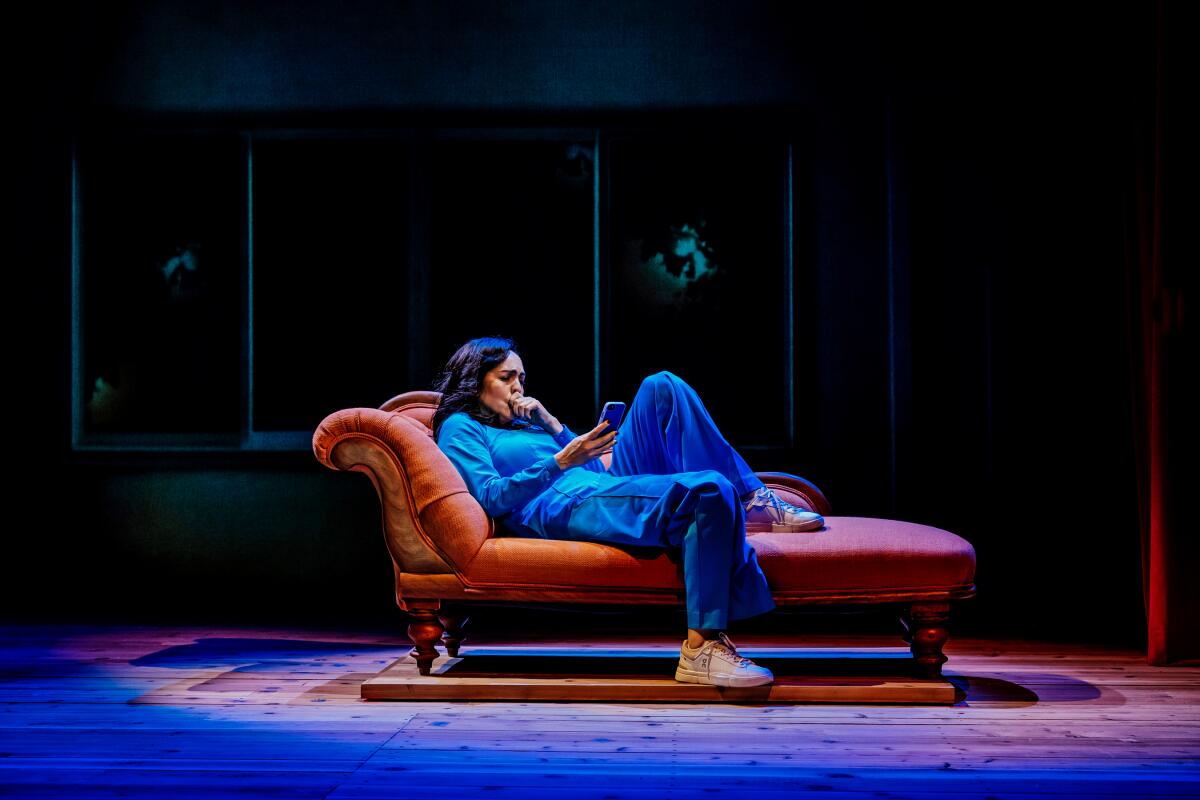
Roxana Ortega in “Am I Roxie?” at Geffen Playhouse.
(Jeff Lorch)
Birth and death weigh heavy on Ortega’s mind, as she ponders her own lifespan, the diminishing window for motherhood and the confused and sometimes angry helplessness of Carmen, who comes to believe that her daughter is her sister. Eventually, Carmen will wonder if she herself is Roxie, an existential dilemma that Ortega refuses to understand as a mere symptom of Alzheimer’s disease.
She’s reluctant at the start to name her mother’s condition. How can she reduce a loved one to a medical diagnosis? Even at Carmen’s most exasperating, she could still surprise Ortega with a simple, poignant question: “How are you doing in your life, Roxie?”
Ortega begins to understand that, though her mother has been transformed, she can still connect with her if she accepts her as she is. By speaking to her mother in the nonsense language she falls into and by playing games of pretend as if they were back in her childhood home, Ortega reaches her mother, if only for fleeting moments.
The production, directed by Bernardo Cubría, seems to have adopted a medical oath of first doing no harm. A set piece is every now and again mechanically (and somewhat quizzically) moved in or out, and there are projections offering illustrations of Fullerton and Ortega’s mental health adventure scaling the peak of Mt. Kilimanjaro.
But “Am I Roxie?” doesn’t depend on scenic frills. Ortega is the show — not just her story but her rapport with the theatergoers, with whom she confides as if to old friends. She shares her fears that she might have occasionally failed her mother, but this confession is just another example of her generous humanity.
‘Am I Roxie?’
Where: Gil Cates Theater at Geffen Playhouse, 10886 Le Conte Ave., L.A.
When: 7:30 p.m. Wednesdays-Thursdays, 8 p.m. Fridays, 3 and 8 p.m. Saturdays, 2 p.m. Sundays. Ends Oct. 5
Tickets: $45 – $139 (subject to change)
Contact: (310) 208-2028 or www.geffenplayhouse.org
Running time: 1 hour, 25 minutes (no intermission)
’
